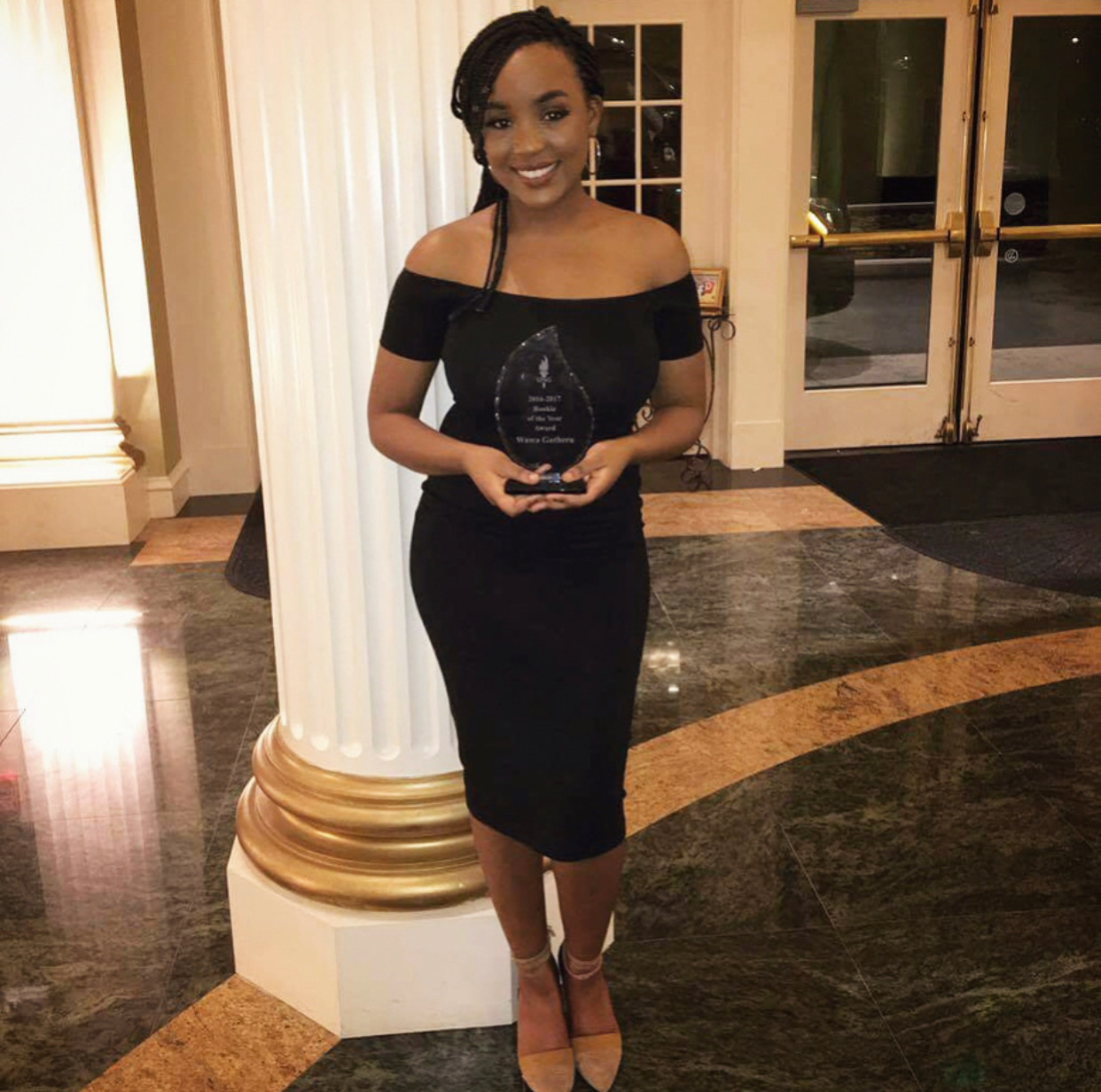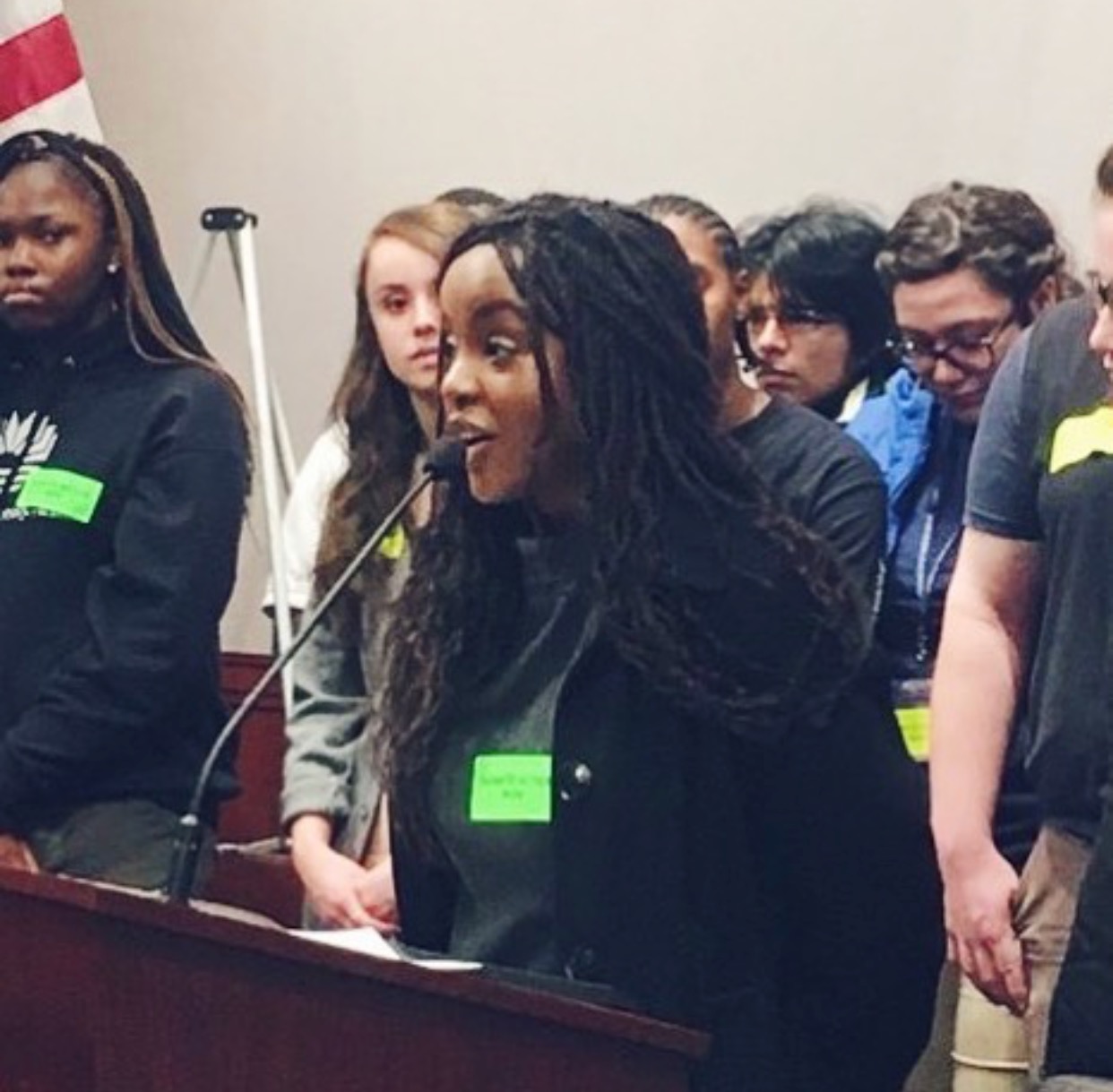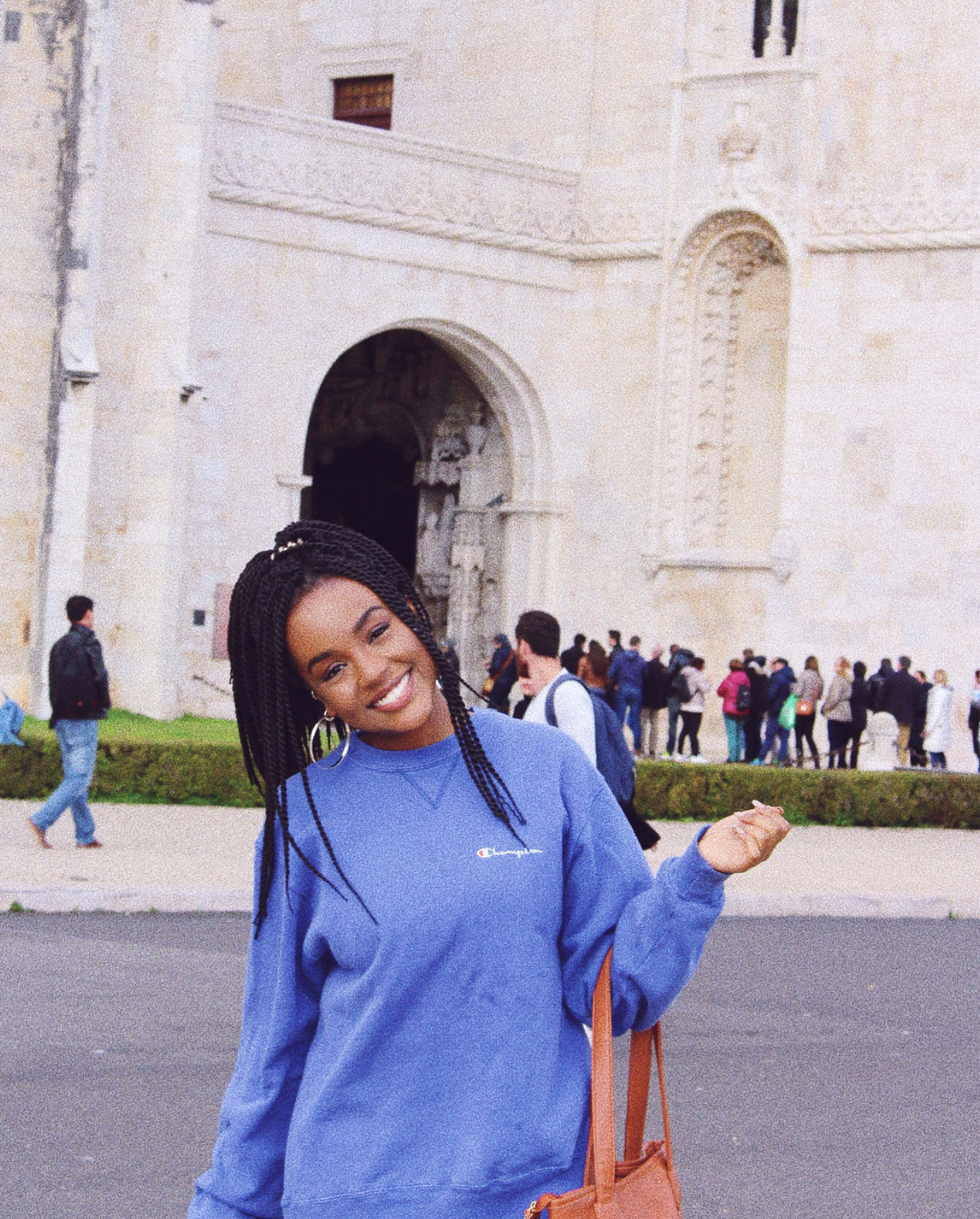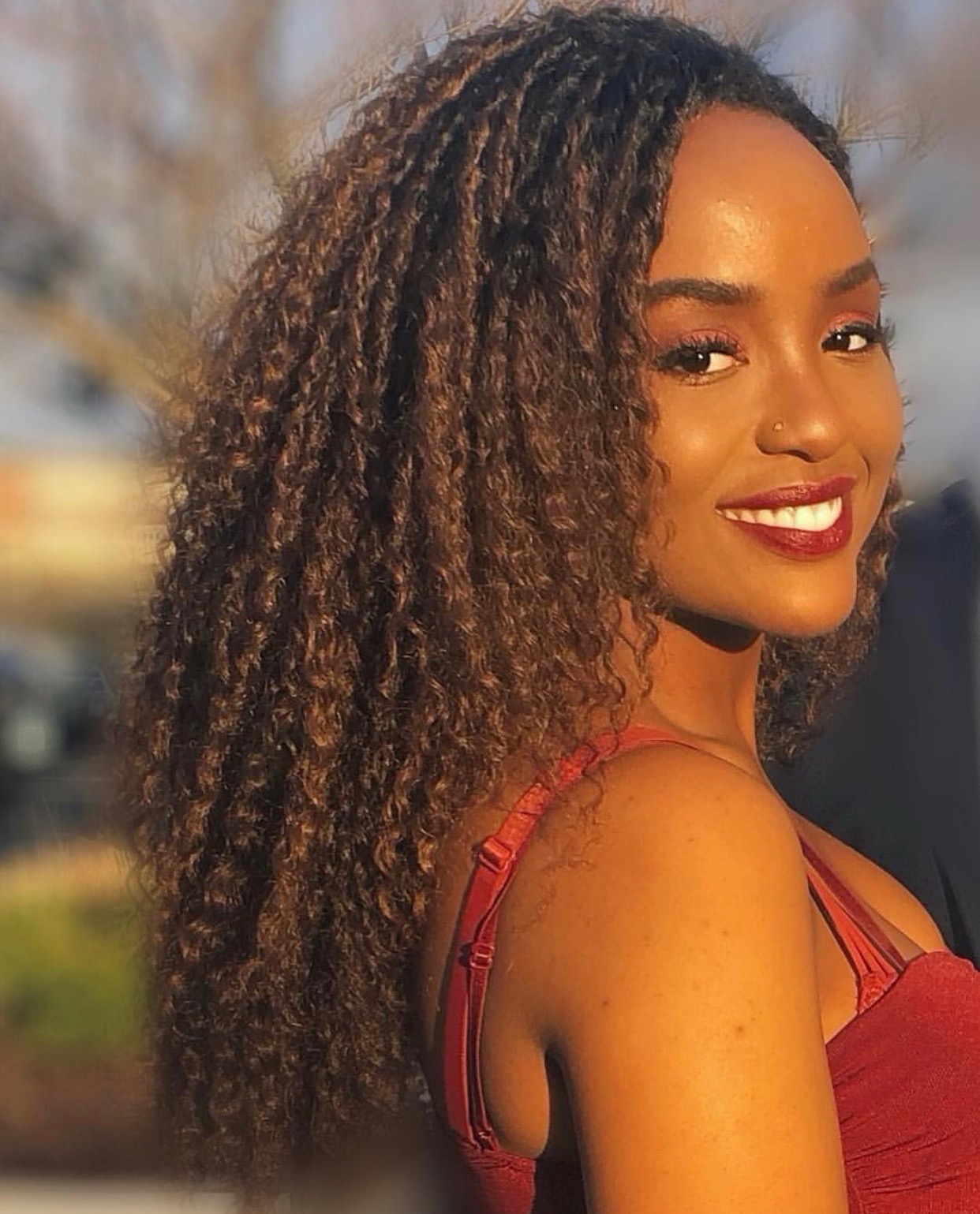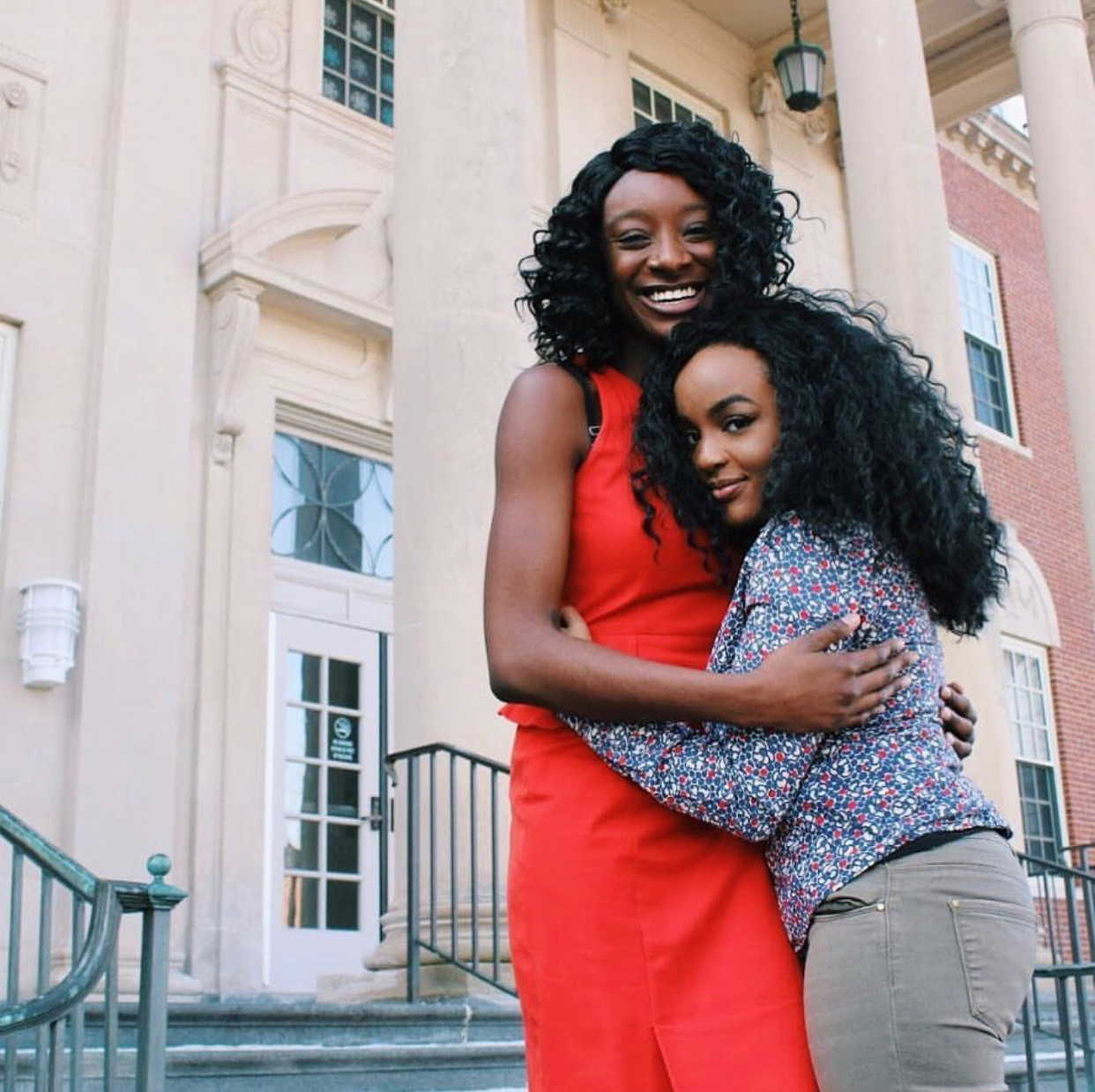WAWA GATHERU
Name: Wanjiku (Wawa) Gatheru
Age You Feel: 20
Occupation: Student
Hobbies: Watching documentaries, spending time with my sisters, baking (badly), reading, singing, and listening to music
Career
TGM: Where and how did you grow up?
WG: I am lucky to call quite a few places my home. I spend most of my childhood in the Quiet Corner of the State, in Putnam and Pomfret, CT. My parents made the decision to move to Pomfret when I was in the first grade, as the town has a really great school system. Growing up in the Quiet Corner was a very grounding experience, as my family was (and remains) as the only Black family in my town. It was often difficult, but I am now appreciative of the things I went through growing up. As cliche as it may sound, that upbringing has made me stronger. That said, overall I had a very happy childhood! I grew up in a very loving Kenyan household, with two sisters and a brother. My siblings and I are very, very close, and I consider them to be my best friends and soul mates. I also lived in Buriram, Thailand for a year and consider Thailand to be my second home as well.
TGM: What inspired you to get into environmental justice?
WG: Growing up I never identified as an environmentalist. In fact, I did not learn of environmental justice - at least in its technical form - until my junior year of high school. This was due to the fact that environmentalism never looked like me. It was always presented to me as a thing of leisure, for rich white people. As I couldn’t relate, I never spent much time thinking about my potential contributions to environmental issues. It was my junior year of high school, in an environmental science course, that I was finally introduced to the concept of environmental racism and justice. I saw EJ as an issue that was largely under discussed due to other pressing issues, such as police brutality and education. That said, I made the decision then that I wanted to dedicate myself to EJ and working to dismantle the systems of oppression that allow for EJ to persist.
TGM: How did you end up as the undergraduate student body vice-president at UConn?
WG: The Undergraduate Student Government (USG) was an organization I had planned to join before I even enrolled in college. Student government had been a huge part of my high school experience and I knew I wanted to remain involved in college. My main goal - as it remains - was to work on the behalf of students through advocacy. I began as a McMahon senator and served as the Student Services Chairperson my sophomore year. Through the student services position, I was able to directly work with senior administration across a range of issues, spanning from dining to transportation to sustainability. Eventually, Ama, UConn’s first female black President of the Undergraduate Student Government, and I came together and decided to run together - and were ultimately successful!
TGM: How do you feel that women of color are specifically put at a disadvantage in these issues?
WG: It is actually a fact! Women of color bear a disproportionate burden from the impacts of environmental degradation and climate change due to the impacts of racism, colonialism, and the intersection of so many other forms of inequality. That said, we are indispensable actors of change in these arenas - and should be recognized as such!! A successful environmental movement will need to have powerful women of color at the forefront.
TGM: What do you think needs to be done for change to happen?
WG: That’s a hefty question! I think the answer is multidimensional. That said, I believe that a major component of answering our environmental crisis is diversifying our conservation sector. While communities of color are at the forefront of environmental injustice, our communities are simultaneously the most underrepresented in decision making on clean air, climate, and transportation. This needs to change. We should not be labeled as victims, rather we should be appreciated leaders of just and effective solutions.
TGM: You work mostly with college students. What have you learned about the way millennials react to environmental crisis?
WG: I find that the majority of my peers are aware and passionate about environmental degradation and climate change. And in all honesty, I believe that everyone is fundamentally passionate about clean water and air as a matter of survival. I find that the disconnect happens when environmentalism is discussed as a moving part in systems of oppression. Connecting the environment to things like racism and sexism can seem like a stretch - especially when there is a lack of curriculum that explicitly connects these things. That said, I have seen a visible shift at UConn where environmental spheres on campus are becoming more aware of these things. There is still a lot of work to be done, but I think we are moving in the right direction.
TGM: If you could tackle one environmental issue right now, what would it be and why?
WG: I would like to see the environmental movement made in the image of us all. A movement that is truly a reflection of the world it inhibits.
TGM: What is your biggest accomplishment yet?
WG: The UConn Access to Food Effort (UCAFE). Specifically advancing the University and state efforts to address campus food insecurity. The University recently created an official working group to study food insecurity at all of UConn’s campuses, in which UCAFE’s data is heavily utilized as a starting point for action. Additionally, we have been able to influence state policy, through hosting a Food Insecurity Roundtable with Senator Chris Murphy and even having our data referenced in his recent report: The Hidden Cost of College. Food insecurity is a pervasive issue that is a nationwide epidemic. The fact that we have begun to create more resources for food insecure students truly makes me so, so happy.
TGM: What are your plans for the future?
WG: I would like to work to transform the environmental movement, through actively engaging front-line communities in the decisions that impact their everyday lives. Doing so will contribute to my overall framework of life - to be happy. Working on environmental issues can be tiring and taxing. That said, prioritizing self care in the plight for environmental justice is how I see myself being truly successful. That self-care involves spending time with friends and family, as well as taking time to simply be.
TGM: What advice would you give to someone inspired to help the environment?
WG: Environmental justice is racial justice is gender justice is economic justice. Working to address EJ requires an intersectional approach.
Just for Fun
TGM: Favorite color?
WG: Red
TGM: Favorite food?
WG: It’s a tie! Fried plantains and Som Tam (Thai papaya salad).
TGM: Favorite book?
WG: Americanah by Chimamanda Ngozi Adichie. It was the first time I truly *felt* the importance of literary representation. I related to the characters - especially the character Wambui (my older sister’s name is Wambui) - in ways that I have never experienced in my life. A true work of art.
TGM: Instagram or Twitter?
WG: Twitter (on the low). I am not visibly active on twitter, but I do use Twitter to keep up to date with current events and to read Game of Thrones fan theories.
TGM: If you could stay a week somewhere for free where would you go? What would you do?
WG: I would go visit my host family in Thailand!! I haven’t been back since May 6, 2016 and I miss Thailand Every. Single. Day. It was the best year of my life. If I had the chance, I would visit my friends from my host school and probably take a few days to explore Bangkok - my favorite city in the world.
TGM: If you had to smell one thing for the rest of your life, what would it be?
WG: Freshly fried plantains!
Let’s Get Personal
TGM: What are two things most people don’t know about you?
WG: I am a singer-songwriter! I spent my early life performing quite a bit (talent shows, musicals, national anthems, you name it), but took a break in high school. I was actually (part II) named the Voice of UConn my freshman year!
TGM: If you had to text to your 15-year-old self, what would the message say?
WG: It’s okay to cry - things will work out.
TGM: What does self-care look like to you?
WG: Self-care is being intentional with my exertion of energy. This looks like spending time with people that ground me and care about me, singing, writing, reading, and spending time outside. I am an introvert, meaning I get my energy from time spent alone. This can be very difficult to do as an organizer and activist. Finding ways to balance has been my pathway towards self-care.
TGM: Fill in the blank. America is…
WG: broken and in need of healing.
TGM: The world is
WG: navigating its new identity.
TGM: My future is:
WG: unknown, but bright.
TGM: What do you want your legacy to be:
WG: I live my life without expectations, so this is a bit difficult for me. That said, I would like to be remembered as a kind, compassionate person that did her best to make the world around her a better place.
All photos provided by her and can be seen on her Instagram




